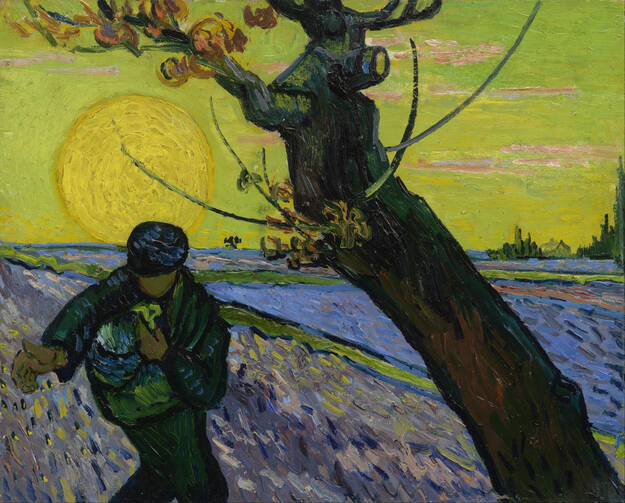A Reflection for the Memorial of Saint Pius of Pietrelcina, Priest
By Zac Davis
Find today’s readings here.
“A sower went out to sow his seed. And as he sowed, some seed fell on the path and was trampled, and the birds of the sky ate it up. Some seed fell on rocky ground, and when it grew, it withered for lack of moisture. Some seed fell among thorns, and the thorns grew with it and choked it. And some seed fell on good soil, and when it grew, it produced fruit a hundredfold.” (Luke 8:5-8)
You might say he was simply not a very good farmer.
It is careless, after all, to just toss seed around haphazardly, which is exactly what the sower in our parable seems to be doing. To be fair, this is also my approach in my little backyard urban garden, where I let God and Brooklyn decide what will end up growing and what will die. Still, if you watched someone throw some seeds into a pile of rocks or thorns, and then watched as their plants withered and died, you might be tempted to say: Well, what did you expect?
St. John Chrysostom agreed. He wrote in a homily dated around the fourth century, “A farmer would be chided who would sow seed among thorns, and upon rock, and upon the wayside. For it is not possible for rock to become earth, or for a road to cease to be a road, or for thorns to cease to be thorns.”
It’s tempting to look at the differing agriculture settings in the parable, or the ups and downs that we find ourselves in throughout our lives, as fait accomplis: Seed planted on a rock will never grow, I will always lose my temper at that person, things will never get better, what is even the point in trying, etc. There are some people in life with good soil, sun and water in their lives, but some of us are just as barren as the surface of Mars. End of story.
But this is thinking not as God does, but as human beings do. St. John Chrysostom continues: “For here it is possible for rock to be changed into good earth, and for a way to cease to be trodden on, and for thorns to be rooted out.”
Our situations are never fixed, our sins are never permanent features and our lives are never without hope. And even when we are mired in the thorns of our lives, we still contain within us the very seeds of conversion and God’s love. Seeds that can produce fruit a hundredfold.
“For unless this could be,” St. John Chrysostom reminds us, “He would not have sown.”
Zac Davis is an associate editor and the senior director for digital strategy for America. He also co-hosts the podcast, Jesuitical.








